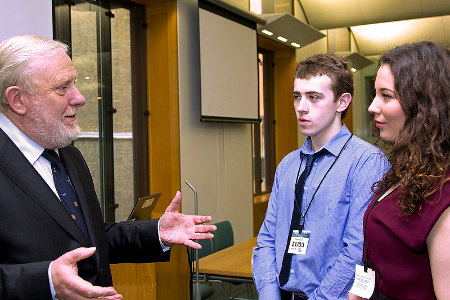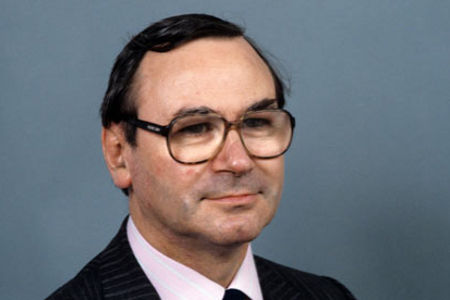
PITCOM History
Foundation
PITCOM was founded in January 1981 as a result of the merger between the Parliamentary Computer Forum and the All-Party IT Committee, with Sir Ian Lloyd MP as the founding chairman. Its roots, however, date back to 1978 when Bow Group team created the Conservative Computer Forum. Shortly thereafter, the All-Party IT Committee was formed under the leadership of Ian Lloyd, while the industry set up the Parliamentary Computer Forum with an aim to inform MPs about the interests of the industry. According to Sir Ian Lloyd, PITCOM’s foundation was a reflection of the acknowledgement that IT is of national, not of party interest and that the Parliament must keep step with technology.
Early Work
Early history of PITCOM was characterised by evening meetings on which the members discussed political issues and organisation of an annual event. In the second half of 1981, PITCOM organised an exhibition on computerised aids for disabled people. One year later, the Associate Parliamentary Group organised the “Computers in School” and held a seminar which addressed cable TV technology and its impact on the traditional broadcasting.
PITCOM’s Role in Foundation of the Federation Against Software Theft
In the mid-1980s, PITCOM’s attention was drawn to the issue of piracy by the industry. The Associate Parliamentary Group decided to take action. However, to retain its neutral position, the members decided to form a copyright committee which created a sub-group to look into the issue and prepare recommendations on actions to undertake. This never happened and the members set up the Federation Against Software Theft. The latter launched a campaign which resulted in the adoption of the Copyright Amendment Act 1985.
Michael Marshall Takes Over PITCOM’s Leadership
In 1987, Michael Marshal MP succeeded Ian Lloyd as PITCOM’s chairman. He pursued his predecessor’s work, organising meetings and annual events but he also introduced overseas study tours. Under Marshall’s leadership, PITCOM also launched a campaign to encourage more girls to apply to IT graduate programmes. The campaign worked and the number of girls graduating from IT programmes increased from 10 to 25 percent. Formation of the EURIM (today’s Information Society Alliance) was another major achievement of the “Marshall’s era”.
From 1997 to the Merger with the All-Party Group on the Digital Economy
In 1997, Michael Marshall was succeeded by John McWilliam MP who also served as Director of EURIM. He continued with overseas study tours which were of major help for IT initiatives in a broader context. In 2005, he was succeeded by Andrew Miller MP who amongst other also organised school competitions through e-Skill. Under Miller’s leadership, PITCOM also began working closely with the Internet Governance Forum. The last PITCOM’s chairman, Rt Hon Alun Michael took over the leadership in 2010 and played an important role in PITCOM merging with the All-Party Group on the Digital Economy into today’s PICTFOR one year later.



